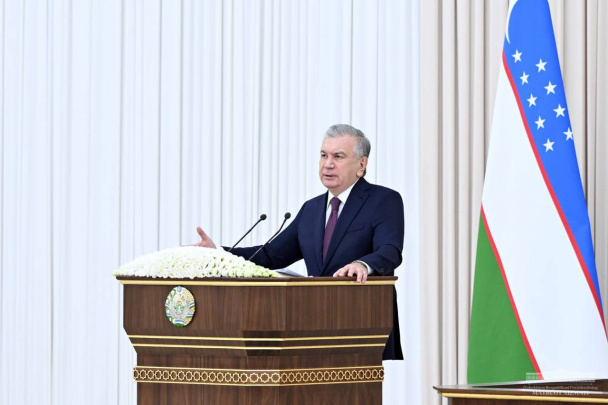Horn Glass Industries to build float glass plant in Zarafshan
Turnkey project specialist Horn Glass Industries is supplying a 250 tons per day float glass plant for the Zarafshon Oyna company in Zarafshan, Uzbekistan.

Horn Glass Industries began equipping the plant in May. The Ploesburg, Germany-based company, is in charge of planning, delivering and commissioning all technological equipment to the facility, Glass International says.
It is due to be handed to the customer next summer.
Since extraordinary times call for extraordinary commitment, a lot of Horn’s employees are currently stationed in the city of Zarafshan.
Uzbekistan has no float glass production of its own and therefore has had to import glass sheets from abroad.
The scope of supply includes planning the melting tank, tin bath and annealing lehr and delivering all the refractory material, the firing system for natural gas and diesel oil, batch and cullet chargers, coolers, stirrers and measuring as well as control technology.
Horn will also supply the tin bath with its associated technological equipment including a shield gas mixing station as well as the entire annealing lehr and automation system for the hot end.
With regard to total automation, Horn developed a concept for the top rollers that allows the tin bath to be integrated in the process control system. Zarafshon Oyna will use the HTRM-S (suspended) top roller.
Horn relies on Siemens products for all the machine technology.
As a general contractor for this project, Horn has collaborated with European companies which specialize in different fields.
Horn has recommended future expansion at the site so that processing and finishing can also be performed in Uzbekistan.
In doing so, the customer will be able to market architectural and automotive glass directly from the factory, both at home and abroad and consistently promote the Made in Uzbekistan image for float glass products as well.
Recommended
List of streets and intersections being repaired in Tashkent published
SOCIETY | 19:12 / 16.05.2024
Uzbekistan's flag flies high on Oceania's tallest volcano
SOCIETY | 17:54 / 15.05.2024
New tariffs to be introduced in Tashkent public transport
SOCIETY | 14:55 / 05.05.2023
Onix and Tracker cars withdrawn from sale
BUSINESS | 10:20 / 05.05.2023
Latest news
-
Customs authorities in Tashkent and Navoi seize 2 billion UZS worth of smuggled gold
SOCIETY | 20:18 / 06.05.2025
-
Sweden to offer €32,000 to migrants who voluntarily return home
SOCIETY | 17:33 / 06.05.2025
-
Uzbekistan tops global gold sales for second consecutive month
SOCIETY | 17:31 / 06.05.2025
-
Kyrgyzstan’s new border rule hampers travel to Uzbekistan’s exclaves Sokh and Shohimardon
SOCIETY | 16:15 / 06.05.2025
Related News

17:15 / 01.11.2024
President Mirziyoyev proposes reopening Zarafshan Airport

15:15 / 17.11.2021
50 people trapped during excavation of gold sand in Zarafshan. Ministry of Emergency Situations comments on the case

12:00 / 13.05.2020
300 people evacuated in Zarafshan due to mudflow

15:44 / 24.12.2019



